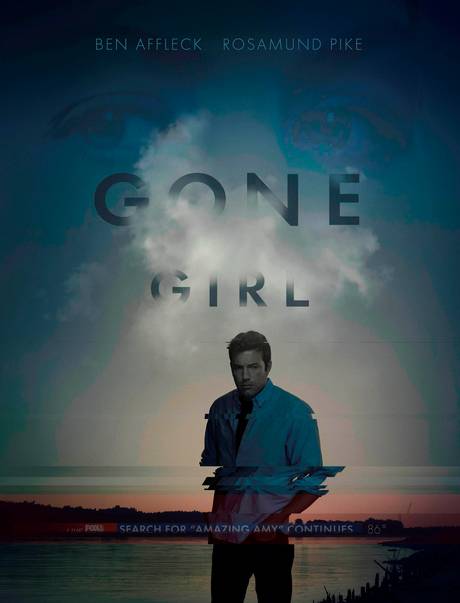

Full disclosure: I loved Gillian Flynn’s novel Gone Girl, a psychological thriller about a marriage gone wrong.
After reading it, I commented that it was one of the best books I had read in a while. Naturally, I had high hopes for its film adaption.
Having seen director David Fincher’s The Girl with a Dragon Tattoo and admired the score for The Social Network composed by Trent Reznor and Atticus Ross, all who contributed to Gone Girl’s adaption, I had a good feeling the book’s dark tone would be honoured in the film.
First off, the casting of this movie highly contributed to its success. Ben Affleck nails Nick Dunne’s signature grin and the “punch me” face and attitude that identifies him as an antagonist for much of the book.
And though I thought it difficult for anyone to embody Amy Dunne’s sociopathic tendencies, Rosamund Pike captures her nuances to the point where the audience watches with both horror and intrigue at the same time.
While I had read some reviews prior to seeing the film, which largely criticized the film for portraying Nick as the victim — and this did stand true for about three quarters of the film — the final act is effective in communicating Nick and Amy’s relationship as equally problematic on behalf of both parties.
What I loved so much about the book was its ability to alter who the reader views as the protagonist, culminating in an ending that leaves the reader non-empathetic to both characters — something I hadn’t come across in a novel before, nor have I since.
Affleck and Pike are able to capture this aspect of Nick and Amy’s relationship that leaves the viewer deeply unsettled at the end of the movie.
The score also contributed greatly to the overall tone of the film. The background music was ominous and made the audience uneasy as Amy’s story unfolded.
Aided by Fincher’s signature muted colour palate, the movie works toward the conclusion of just how hostile and abusive Nick and Amy’s relationship is.
I believe the success of the film as an adaptation was in large part due to Flynn writing the screenplay herself, which allowed the story to be told with the proper changes necessary for the different medium.
For example, much of the novel is told through Amy’s diary entries, which in the film are translated as flashbacks and voiceover that Fincher uses to juxtapose the past and the present to mislead the viewer even more.
The team of Fincher, Flynn, Reznor and Ross combine to present this adaption that will certainly cause the viewer to question conventional story telling and first impressions of characters.
Tags
Ben Affleck, David Fincher, Gillian Flynn, Gone Girl, movie review, Rosamund Pike
All final editorial decisions are made by the Editor(s)-in-Chief and/or the Managing Editor. Authors should not be contacted, targeted, or harassed under any circumstances. If you have any grievances with this article, please direct your comments to journal_editors@ams.queensu.ca.
